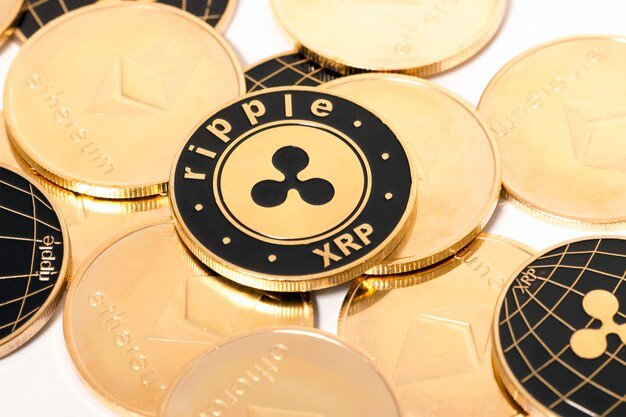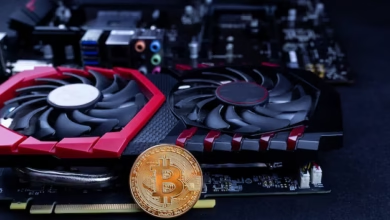XRP ETF Approval Potential: A Game-Changer for the Crypto Market

The cryptocurrency landscape has seen dramatic developments over the past decade, with Bitcoin and Ethereum leading the charge. However, one cryptocurrency that has recently garnered attention from both investors and regulators is Ripple’s native token, XRP. While XRP has faced numerous legal and regulatory challenges, the potential approval of an XRP ETF (Exchange-Traded Fund) could significantly impact the market and its adoption. But what exactly is the likelihood of XRP receiving ETF approval, and how could it reshape the future of digital assets?You know about openrendz.
What is an ETF and Why Does XRP Need One?
An Exchange-Traded Fund (ETF) is a type of investment fund that holds assets like stocks, commodities, or, in the case of crypto, digital currencies. ETFs are traded on stock exchanges, just like regular stocks, and they offer investors a way to gain exposure to the underlying assets without actually owning them directly. For instance, a Bitcoin ETF would allow investors to gain exposure to Bitcoin’s price movements without having to manage wallets, private keys, or worry about the complexities of crypto exchanges.
For XRP, an ETF would provide a regulated, easy-to-access investment vehicle for institutional and retail investors. This would likely lead to greater mainstream adoption of the cryptocurrency, boosting its value and solidifying its position in the wider financial ecosystem.
The Regulatory Landscape for XRP
The approval of an XRP ETF is closely tied to the legal and regulatory environment surrounding the cryptocurrency. XRP has had a turbulent relationship with the U.S. Securities and Exchange Commission (SEC). In December 2020, the SEC filed a lawsuit against Ripple Labs, claiming that the company had conducted an unregistered securities offering by selling XRP. This lawsuit has put a cloud over XRP’s future in the U.S. and has affected its adoption, particularly in institutional markets.
As of now, the SEC’s stance on XRP remains uncertain. While the legal battle has not yet concluded, the outcome could set a precedent for how other cryptocurrencies are classified. If the court rules in favor of Ripple, it could pave the way for XRP to be treated as a commodity, like Bitcoin or Ethereum, making it more amenable to ETF approval. Conversely, if the court sides with the SEC, it could hinder XRP’s potential for an ETF and limit its ability to operate freely in the U.S. financial markets.
The Case for an XRP ETF
Despite the regulatory uncertainty, there are several compelling reasons why an XRP ETF could be approved in the future. First, XRP is one of the most liquid and widely traded cryptocurrencies. It is recognized for its fast transaction speeds and relatively low fees, which make it an attractive choice for cross-border payments. Additionally, XRP has a strong presence in the financial sector, with Ripple Labs forming partnerships with major banks and financial institutions globally.
Second, as the crypto market matures, more institutional investors are seeking regulated products to gain exposure to digital assets. An ETF provides these investors with a familiar structure and compliance with existing financial regulations, making it an appealing choice. In the past few years, we’ve seen the approval of Bitcoin and Ethereum futures ETFs, as well as Bitcoin spot ETFs in some countries, which have proven the market demand for regulated crypto investment products. If regulators are willing to approve ETFs for Bitcoin and Ethereum, there’s a strong case for XRP to eventually follow suit.
Furthermore, XRP’s unique use case in the world of cross-border payments is a major selling point for an ETF. Unlike Bitcoin, which is primarily viewed as a store of value, XRP is actively used by financial institutions to facilitate transactions. This real-world utility could make XRP an attractive option for investors looking to capitalize on the growing demand for blockchain-based financial services.
Challenges to XRP ETF Approval
However, the road to XRP ETF approval is not without its challenges. The ongoing legal battle with the SEC is the primary obstacle standing in the way of XRP’s potential for an ETF. Until the case is resolved, regulators are likely to remain cautious about granting approval for XRP-based investment products. Additionally, the regulatory landscape for cryptocurrencies is still evolving, and different countries have different stances on crypto assets.
Moreover, the SEC has been historically hesitant to approve cryptocurrency ETFs due to concerns about market manipulation, lack of investor protection, and the overall volatility of digital assets. While Bitcoin and Ethereum ETFs have gained approval, many in the industry believe that it may take time for other cryptocurrencies like XRP to reach the same level of regulatory acceptance.
The Future of XRP ETF Approval
The potential approval of an XRP ETF depends largely on the resolution of the ongoing legal dispute with the SEC and the broader regulatory outlook for digital assets. If Ripple wins its case and XRP is classified as a commodity, it would make the path to ETF approval much smoother. In contrast, a loss could lead to delays and further legal hurdles for XRP-based investment products.
However, the growing interest in crypto assets and the increasing demand for regulated investment options suggest that XRP may eventually be approved for an ETF. While it may take time for XRP to reach the same level of acceptance as Bitcoin or Ethereum, the potential approval of an XRP ETF could have a transformative effect on the market, bringing greater liquidity, institutional investment, and mainstream adoption to the cryptocurrency space.
Conclusion
The potential approval of an XRP ETF is still uncertain, primarily due to the ongoing legal challenges and the regulatory landscape surrounding the cryptocurrency. However, the case for an XRP ETF is strong, especially considering its widespread use in the financial sector and growing interest from institutional investors. While regulatory hurdles remain, the future of XRP remains promising, and an ETF approval could be a major milestone in its journey toward mainstream adoption. Until then, the market will continue to watch the developments closely, hoping that XRP’s legal and regulatory obstacles will be overcome, allowing it to become a key player in the evolving world of digital assets.



